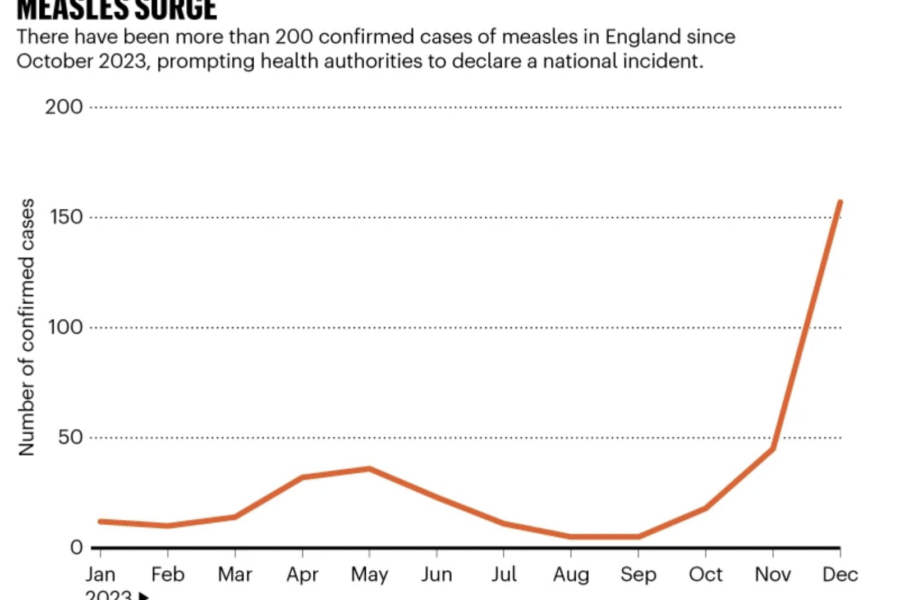Nature A drastic rise in infections in the United Kingdom and Europe follows a drop in vaccine uptake.
UK health services are battling an outbreak of measles — causing alarm in a nation that had eliminated the disease in 2017.
On 19 January, the UK Health Security Agency (UKHSA), the public-health authority, declared a national incident over rising cases of measles. The agency has logged more than 300 cases in England since 1 October 2023 (see ‘Measles surge’).
A decline in uptake of the measles, mumps and rubella (MMR) vaccine, which is given in two doses, during the COVID-19 pandemic has spurred the spread of the disease across England and the rest of Europe, while small outbreaks have occurred in a handful of US states.
Measles is caused by a virus and is highly contagious. It is spread through coughing and sneezing. Symptoms include a fever, a runny nose and an itchy rash of red-brown spots. “It’s considered to be one of the most infectious respiratory infections there is,” says population-health researcher Helen Bedford at University College London. Those most at risk include babies, young children, pregnant people and those with a weakened immune system.
Nature explores the uptick in cases.
Why are measles cases rising in the United Kingdom?
Low uptake of the measles vaccine is a key driver of the UK measles cases, say researchers. Around 85% of children in England have received two MMR vaccine doses by five years old, according to data from the National Health Service (NHS). This falls below the vaccination rate of at least 95% needed to achieve ‘herd immunity’ — which substantially reduces disease spread — as recommended by the World Health Organization (WHO; see ‘Jabs needed’).
